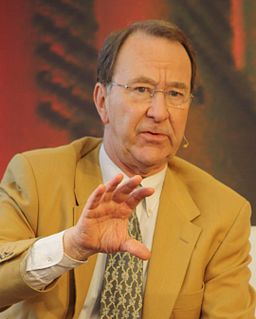Top 12 Quotes & Sayings by Ian Kershaw
Explore popular quotes and sayings by an English historian Ian Kershaw.
Last updated on April 13, 2025.
In the election campaign of 1930, Hitler seldom spoke explicitly of Jews. The crude tirades of the early 1920s were missing altogether. 'Living-space' figured more prominently, posed against the alternative international competition for markets ... The key theme now was the collapse of Germany under parliamentary democracy and party government into a divided people with separate and conflicting interests, which only the NSDAP could overcome by creating a new unity of the nation, transcending class, estate and profession.
Without the changed conditions, the product of a lost war, a revolution and a pervasive sense of national humiliation, Hitler would have remained a nobody. His main ability by far, as he came to realise during the course of 1919, was that in the prevailing circumstances he could inspire an audience which shared his basic political feelings, by the way he spoke, by the force of his rhetoric, by the very power of his prejudice, by the conviction he conveyed that there was a way out of Germany's plight.
Within the Nazi Party, the beginnings of a personality cult around Hitler go back to the year before the [Munich] putsch... Outside these small groups of fanatical Bavarian Nazis, Hitler's image and reputation at this time - so far as the wider German public took any notice of him at all - was little more than that of a vulgar demagogue, capable of drumming up passionate opposition to the government among the Munich mob, but of little else.
The repeated claim before the 'seizure of power' - that the NSDAP, as a national social-revolutionary movement, and not simply another political party... would create new bonds of unity through its elimination and transcending of the party system, was highly attractive and conveyed much of Nazism's dynamic appeal.
























